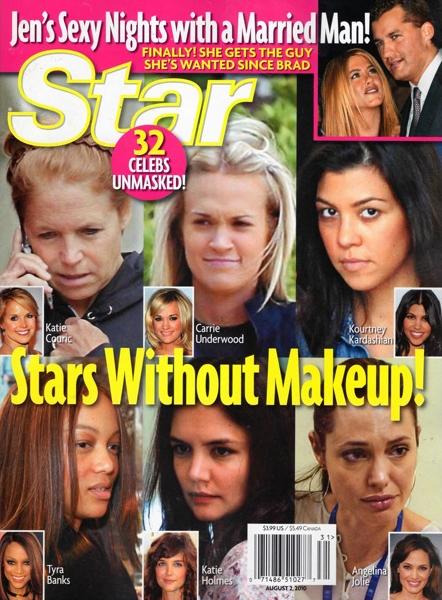A woman’s worth is based on her looks. This is a statement that the media subconsciously and consciously feeds to our brains. In the eyes of society, a pretty woman is a more valuable woman. From watching documentaries like Miss Representation and Gloria: In Her Own Words and reading articles from Ms. Magazine, I have come to realize that the ideas of worth and beauty that we internalize from the media aren’t facts that we should use to shame ourselves but rather proof that we as a society need to change.
In movies and television women are sexualized. It may seem as though this is only present in movies made for a more mature audience, but in G rated movies, women are just as likely to be wearing revealing clothing. For example, in Peter Pan, Tinkerbell wears an extremely short dress. Since she is a cartoon character, we might not think of her clothing as “revealing,” but children are already getting these ideas of beauty ingrained into their minds by seeing these images in cartoons such as the one below.

Tinker Bell as she is portrayed in the Disney Movie
Image Credit: Disney Hadas http://www.disneylatino.com/
Unlike the empowering magazine, Ms. Magazine, many magazines directed towards women such as Cosmopolitan have titles or blurbs of articles on the cover that do not help to get rid of the idea that women’s looks determine their value.
Some of Cosmopolitan’s cover titles include, “Lose weight while you eat,” “The surprising trait 80% of men find sexy,” “Shrink your inner thighs,” “What he wants to see during sex,” and ”Sexy party dresses.”All of these cover titles that we read or glance at everyday are related to beauty or to pleasing a man.
In the film Gloria: In Her Own Words, Gloria Steinem says, “women show power by getting men to fall in love with us.” The only “real role” for women is to vie for the attention of a man, make him happy, and reproduce. A woman’s physical looks are the only real resource to fulfill this, and therefore are what determines a woman’s value.
In the film, Miss Representation, comedian Margaret Cho shares a story about how she was told she had to lose weight to secure a role. It seems very common that women are told they need to lose weight to get a role; we certainly see the results of this expectation, as we are mostly shown extremely thin actresses on screen.
According to the documentary, Miss Representation, “By the age of seventeen, 78 percent of girls are not happy with their bodies.” Tabloids are constantly bringing attention to the slim bodies of celebrities and emphasizing how perfect they are, while tabloids are also bringing attention to the not so “perfect” bodies and ridiculing them. In a recent issue of the National Enquirer, the cover is centered around the “best and worst beach bodies.” This issue includes a picture of the singer/actress Selena Gomez under the category “worst beach bodies.” Under the picture is a blurb that states, “Selena Gomez might think about shedding a few pounds.”

December 3, 2012 cover of National Enquirer
As a seventeen year old girl, this is what effects me the most. These ideas start to transfer over to myself and other girls that are seeing this in the media. If an actress that I see as beautiful is being told that she needs to lose weight, then what does that make me?
This is when girls’ self-esteem diminishes and when start to think poorly about themselves based on the ideas internalized from the media.
You can see from the National Enquirer issue that the “worst” on the cover is bigger and bolded. Why do tabloids always feel the need to point out or even search for women’s flaws? And consequently, why do we as people feel the need to read these magazines even though we recognize that what these tabloids are doing is wrong? Why do we sit there and think to ourselves “Oh, she has gained a lot of weight”?
To go along with this, there are always issues of magazines that surround their main feature story around “celebrities with no makeup.” I never really understood the purpose of these types of stories but nor did I ever really question them before. I always read them. I always sat there comparing the differences between the pictures of the celebrities with and without makeup. But now I think, is the purpose to point out the flaws of these women? Are these magazines trying to prove that women are just as pretty without makeup? Or are they trying to imply that all women should wear makeup and that it should be so shocking when they don’t that  magazines need to have a whole cover and article dedicated to it?
magazines need to have a whole cover and article dedicated to it?
The purpose of these types of stories is still not clear to me, but they do make me question society. Female celebrities, and all women for that matter, shouldn’t have to be considered “brave” when they pose for a picture without makeup. Shouldn’t that be something that’s normal? Unfortunately, it’s not.
We live in a society filled with airbrushed magazine photos and billboards. We live in a society where even political leaders like Hillary Clinton are condemned in the media for not wearing makeup.
Women not wearing makeup shouldn’t be considered “news.” We shouldn’t feel like we have to cake our faces up with makeup and cover any little imperfection to promote our value to society.
This type of media is helping to propel society further in the wrong direction. We all need to take a step back, take our faces out of the tabloid magazines, and turn off the gossipy shows for a moment and realize that women are much more than their looks.
